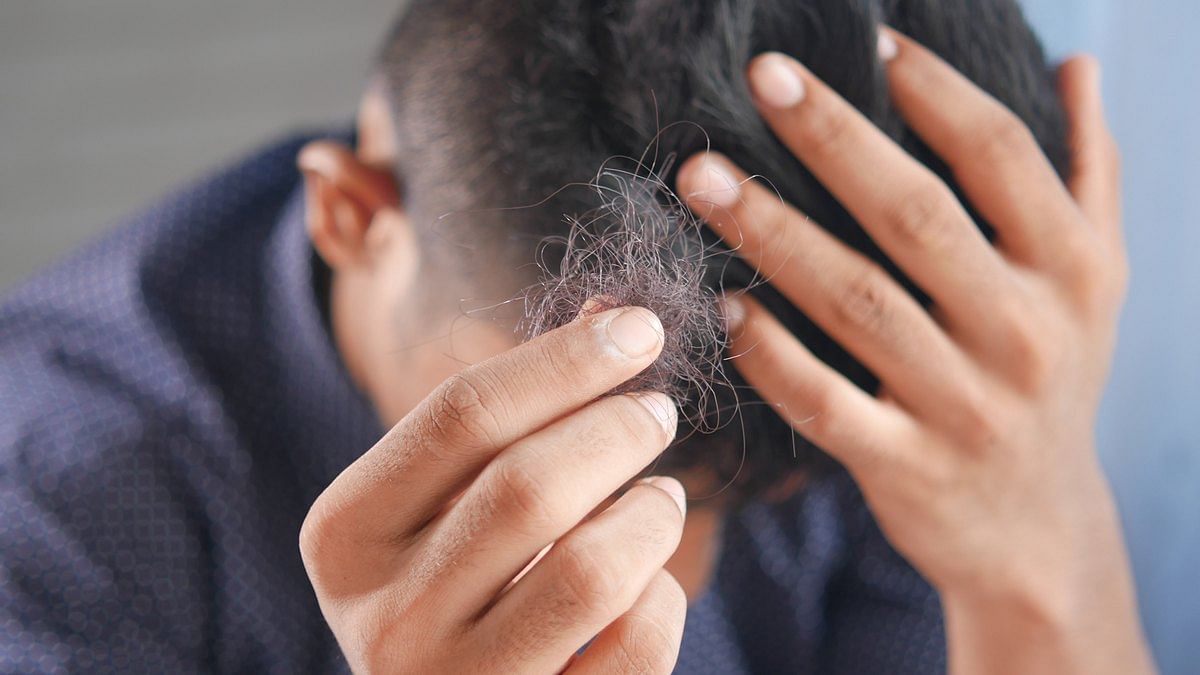TThis week, many patients came to me with messy hair due to the rainy weather. This prompted me to talk about hair care for the Indian climate.
The varying weather conditions in India present unique challenges for maintaining healthy hair. From the humid monsoon rains to the scorching hot summers to the dry winters, each season brings its own challenges for hair care.
Read on to learn about effective hair care tips tailored to our climate, covering everything from frizz control to dandruff prevention.
View full article
Hair care and Indian climate
Various weather conditions in India have a significant impact on hair health:
- Monsoon: The high humidity during monsoon leads to increased hair loss. The scalp becomes a breeding ground for yeast, which leads to dandruff. Chemical treatments such as hair dyes can aggravate these problems and cause even more irritation and itching due to the compromised skin barrier.
- Summer: The intense heat and sweat in summer make hair oily and prone to scalp infections and hair loss. Hair texture can change and hair can become frizzy and unruly.
- Winter: The cold weather can be beneficial for people with oily scalps as they sweat less, but the dry air can cause the scalp to become flaky and prone to dandruff.
Furthermore, India’s dusty environment causes the scalp to get dirty faster, leading to increased bacterial growth and a higher risk of infection. Hair is basically dead tissue and serves only an aesthetic purpose, but can still harbor infections, especially in those with weakened immune systems, such as diabetics.
Read also: Don’t treat your hair loss only with natural or chemical remedies. Choose a combined approach.
Frizz solution
- Use shampoos and conditioners that moisturize your hair and contain ingredients like argan oil, shea butter and glycerin.
- After washing, apply a leave-in conditioner or anti-frizz serum to lock in moisture and smooth frizzy hair. Light oils like argan oil or jojoba oil can also be helpful.
- Minimize heat styling with tools like blow dryers, straighteners and curling irons, as these strip the hair of moisture and make it more prone to frizz. Always apply a heat protectant spray before styling.
- Regular towels can cause friction and frizz. Instead, use a microfiber towel or a soft cotton t-shirt to gently absorb excess water from your hair.
- Dilute apple cider vinegar (ACV) with water in a 1:1 ratio. After shampooing, pour the mixture over your scalp and hair, leave it on for a few minutes, then rinse with water. ACV helps balance the pH of the scalp and smoothes the hair cuticle.
- Mix lemon juice with water and use it as a final rinse after washing your hair. It can help control frizz and add shine to your hair.
Dandruff prevention
- Use shampoos containing active ingredients such as ketoconazole, zinc pyrithione or salicylic acid to combat dandruff.
- Tea tree oil is known for its anti-fungal properties and can help reduce dandruff. Take a few drops of tea tree oil, add it to your regular shampoo or oil and massage it into your scalp.
Home remedies
- Use a 2% cetirizine lotion diluted with water (1:5 ratio). Apply it to your scalp and leave it on for 15 to 20 minutes before rinsing. Adults can apply it overnight and rinse it out in the morning.
- Apply fresh aloe vera gel to your scalp, leave it on for about 30 minutes, then rinse. Aloe vera has anti-inflammatory and soothing properties that can help relieve dandruff.
Read also: Natural products and home remedies are good for Indian skin. Remember, they are not a cure-all
Tips and tricks for hair care
- Avoid tight buns, ponytails and braids, which can lead to traction alopecia (hair loss due to pulling). Opt for loose hairstyles to reduce stress on your hair.
- Proper washing technique: Use a bucket or handheld shower to wash your hair, as high-pressure showers can increase hair loss. Make sure the water is clean and not chemically treated.
- Make sure your diet is rich in essential nutrients such as proteins, vitamins (especially A, B, C and E) and minerals (such as iron and zinc). In addition, regular exercise improves blood circulation, which promotes healthy hair growth.
- Mix castor oil with a few drops of rosemary oil and massage it into your scalp. This combination promotes hair growth and strengthens hair follicles.
- While results may vary, some people find that applying orange juice to the scalp promotes hair growth due to its sulfur content.
- For more bounce and shine, use fresh, not stale beer as a final rinse after washing your hair. Leave it on for a few minutes and then rinse with water.
- Tie your hair loosely before bed to avoid tangles and breakage. If you’ve applied a conditioner or oil, cover your pillow with a towel or wear a shower cap to protect your skin and pillowcase.
As a dermatologist with over 13 years of experience, I always advise you to check your hair regularly depending on the season and observe how different weather conditions affect your hair. Armed with this knowledge, you can and should seek the advice of your trusted dermatologist who can customize your hair care routine to keep your locks looking great all year round. Remember: healthy hair reflects a healthy lifestyle.
Dr. Deepali Bhardwaj is a consultant dermatologist at Max Hospital, Saket. She is also an allergist, laser surgeon and internationally trained aesthetician. Twitter handle: @dermatdoc. Her opinion is personal.
(Edited by Humra Laeeq)

